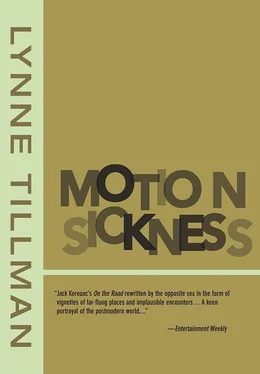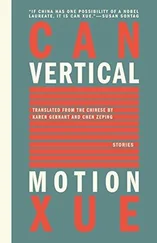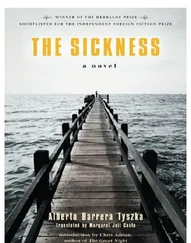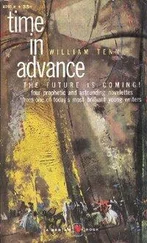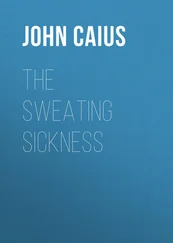It helps that we’re both reading Henry James. It probably amuses her that I like him because he’s not direct. She’s on The Europeans and I’ve got The American , which seems apropos. Conversation with Jessica, and nearly anyone else, leaves me confused, because like the proverbial river that is never the same, all conversation leads from subject to subject, a horse that trots, canters, then gallops away from one’s initial point of departure. I don’t ride horses; I did once, as a child, but Jessica rides them and they’re in my mind now.
My hotel room, plain and verging on ugly, is easy to ignore. The landscape on the wall, inoffensive, the fake wood bureau, serviceable. The room is cleaned by women I never see. I don’t want to see them, because my sense of privacy will be violated if I know the people who come into this space. Sometimes I don’t let them in, we’ve all seen that in movies, and then I hear muttering outside my door. But it stops. Sometimes I wait until everyone has left the floor, and only then do I go out of the room. Adventure creeps into this mundane event, and I remember my father talking about someone’s being out of his element, which is, I suppose, one way to put it, my trips in foreign places. But I can’t write my father a postcard because he’s dead. Sometimes I forget that.
Jessica’s good about death. She doesn’t avoid discussions about it and seems to think it’s a suitable subject for analysis rather than a morbid preoccupation of mine or others. Similarly she can discuss Charles as if he hadn’t abandoned her. Her equanimity appears endless, making her a kind of metaphysician about even her own life. Jessica had wanted to be many things, a veterinarian, a physicist, an opera singer, a biologist, even a missionary during an early Protestant awakening, as she put it. She had come, emerged full-blown, from a long line of people used to doing good. But she became a poet, an antique jewelry stall — owner — on the Portobello Road — as well as a Buddhist, and suffers from being missionless, a despair I don’t think I have, not having come from people like hers. Insanity roamed through her large midwestern tribe, cloistered in proverbial dark closets in gabled houses in areas of the country where no one else lived for miles and miles, as if the openness of the land, the nothingness that seemed to stretch forever, and lack of contact outside the family provided the most fertile ground for a certain kind of American psychosis.
But Jessica loves that same fertile intemperate ground, the depopulated landscape, and communes with nature, noticing trees and naming them, saving leaves and drying them, until her hotel room resembles, with its Buddhist altar and woodsy decor, a certain kind of diorama, like one at the Museum of Natural History, from my point of view. To Jessica anything natural inspired awe and was beautiful, whereas what people made in order to look beautiful or to look at beauty was always and forever tainted. I tell her I can’t see the trees for the people.
One of whom is Charles: I feel I’ve tainted her life with my report that Charles had not dropped off the face of the earth but was seen walking around an underground tunnel and in an Istanbul hotel. Perhaps she would have preferred him living as a monk in a monastery, separate from the human race, disconsolate, or maybe she’d rather have him dead and with the angels. Jessica believes in angels. Then she could have held on to him in memory. That’s what I do, hold on to memory. You relive memories, you develop them, you make them bigger and better and add a touch here and there, like a dab of perfume behind the ear of a memory. Death gives you a reason to remember, to put it all together. To put together a new body, of evidence, of evidence of love, of evidence of something solid to battle the ephemeral. People always say you shouldn’t live in the past, but that’s so stupid because it’s not a matter of will, it’s not voluntary. A person without a past is like a nation without history. It’s impossible. Jessica says things like, I must get on with my life, and I think of Goodbye, Mr. Chips . She’s unquestionably and remarkably good about death.
When we discuss Charles, I try to recall for her, and for me, those few conversations he and I held in the hotel and in the tunnel or cave. Now it seems important to take the pieces of dialogue that lie strewn in that tunnel and pile them on top of each other. And like the jigsaw puzzle that always comes to mind when someone says my life is in pieces, one wants to fashion a whole, something like a personality or a character, but I never finished those giant puzzles when I was a kid, and the way I pick up the pieces and display them for Jessica must be nearly useless. He said, I say, “I’m not much good at anything.” “I hate London.” “I think I’ll travel for a while. Just read and think. Maybe learn to play the clarinet.” He talked, I report, about Anthony Blunt and the Cambridge spies, then segued to Suleiman the Magnificent, the sixteenth-century Turkish sultan, who patronized the arts, particularly those craftsmen who worked with gold, because that was the trade he knew. Ottoman emperors had to learn a trade, which was the kind of thing my father would have appreciated, I told him then. Charles said, I can’t do anything with my hands. Then he held his hands up in front of his face and wiggled them, but as we were underground they were covered by shadow and I couldn’t really see them. He, I supposed, knew what his hands looked like, and the gesture, now that I think of it again, is entirely unreadable and not at all in character with the character I’m pasting together for Jessica. He has become, to me, like the underground man, a nihilist full of angst, who tests the limits of rationality whenever possible. For example, perhaps he left her for no reason at all. This is not what I tell her. Just as I don’t tell her that I sometimes feel like a female version of the underground man, which would make Charles and me transnational siblings. In my imagination anyway.
It’s possible that Jessica intuits how Charles and I are alike, and likes me because I’m like him, if I am. Now I think I am, though I didn’t when I talked with him in Istanbul, which leads me to think that one remembers even the recent past so imperfectly and so much in relation to oneself that every object is skewered upon one’s own identity, like a kind of shish kebab. I can identify with and feel like any number of people, though, people I’ve met briefly or have known over a longer period of time. Everyone is just as chameleonlike, personality fragile as old glass in the windows of historical houses or, like dust, easily shaken from a very dirty mop.
Thinking of dirty mops, I can’t visualize Charles and Jessica having sex together. Jessica seems as much out of her body as in it, and Charles, I can barely recollect his body at all, just his large head and those pale bluish round eyes that stared into dark spaces along with mine. I imagine many people couldn’t dream of sex with me or imagine my having sex with others. This doesn’t stop me from applying unyielding and unimaginative standards to them.
Before going into our separate rooms which are next door to one another’s, Jessica says, putting her key into the lock, I’m not sure, though, what importance beauty has, except for the peace it gives me. But is that enough? Not to worry, I say to her, borrowing one of her phrases which is already borrowed from the English. A transplantation of a sort. Easy to do. Simple. Quite simple. In bed I feel like a body claimed by a name. Then a name claimed by a body. A thing, a human thing, small and powerless. I don’t confide these thoughts to her. Beauty has never had much importance to me.
Chapter 3. Small Pleasures
Читать дальше
